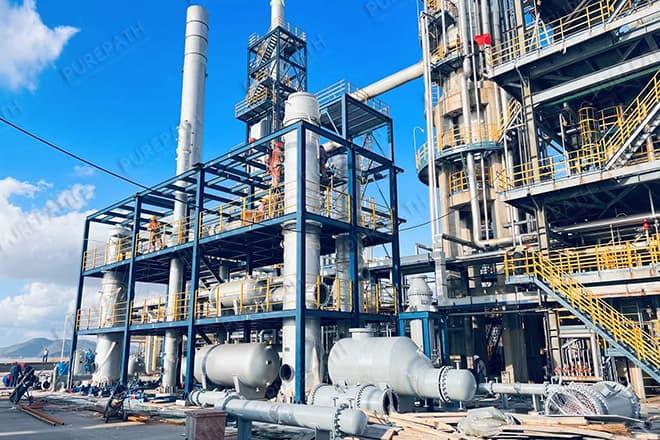The Role of Waste Oil to Base Oil Plants in Achieving Net-Zero Goals

As the world grapples with the urgent need to reduce greenhouse gas emissions and transition to a sustainable future, innovative solutions are emerging across various industries. One such promising technology is the conversion of waste oil into base oil. Waste oil to base oil plants play a pivotal role in achieving net-zero goals by contributing to a circular economy and reducing our reliance on fossil fuels.
Understanding the Process
Waste oil, a byproduct of various industries, including automotive, industrial, and commercial sectors, is often discarded improperly. However, this valuable resource can be transformed into high-quality base oil, a key ingredient in lubricants. The process involves several steps, including:
Collection and Storage: Waste oil is collected from various sources and stored in appropriate containers.
Pre-Treatment: The collected oil is pre-treated to remove impurities, water, and other contaminants.
Distillation: The pre-treated oil is distilled to separate it into various fractions, including base oil.
Additivation: The base oil is blended with additives to enhance its performance properties.
The Environmental Benefits
Reduced Carbon Footprint: By recycling waste oil, we reduce the need for virgin crude oil, which significantly lowers greenhouse gas emissions associated with oil extraction and refining.
Waste Reduction: Waste oil to base oil plants contribute to waste reduction and minimize the environmental impact of improper disposal.
Energy Efficiency: The process of converting waste oil into base oil can be energy-efficient, further reducing carbon emissions.
Challenges and Opportunities
While the potential benefits of waste oil to base oil plants are significant, several challenges need to be addressed:
Initial Investment: Setting up a plant requires substantial capital investment.
Technological Expertise: Operating these plants demands advanced technical knowledge and skilled personnel.
Consistent Supply of Waste Oil: A reliable and consistent supply of waste oil is crucial for plant operations.
Regulatory Compliance: Adhering to environmental regulations and obtaining necessary permits can be complex.
Despite these challenges, the opportunities are immense. As the demand for sustainable and environmentally friendly products grows, waste oil to base oil plants can play a vital role in meeting this demand. By investing in research and development, improving efficiency, and expanding the scale of operations, we can unlock the full potential of this technology and accelerate our journey towards a net-zero future.
By adopting innovative solutions like waste oil to base oil plants, we can create a more sustainable and resilient future for generations to come.
- Art
- Causes
- Crafts
- Dance
- Drinks
- Film
- Fitness
- Food
- Games
- Gardening
- Health
- Home
- Literature
- Music
- Networking
- Other
- Party
- Religion
- Shopping
- Sports
- Theater
- Wellness


